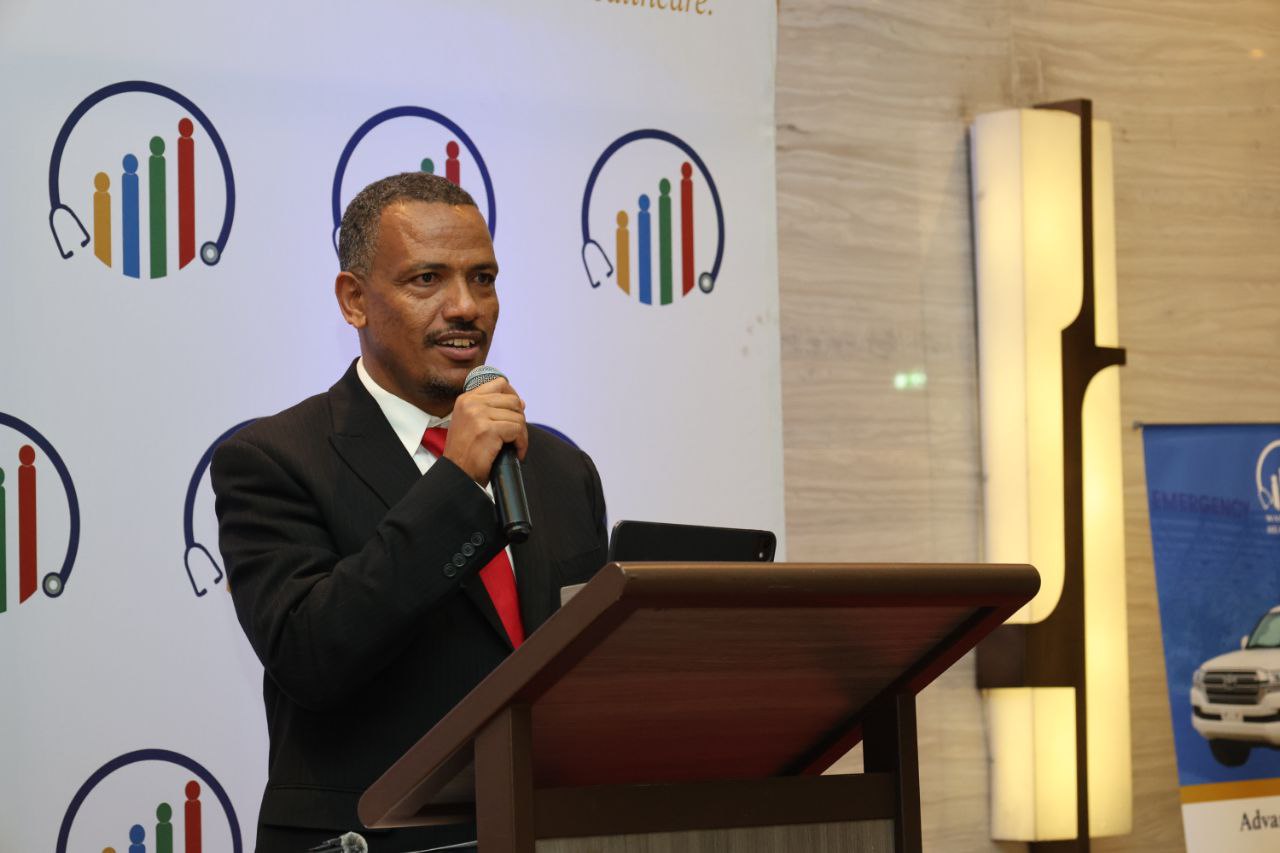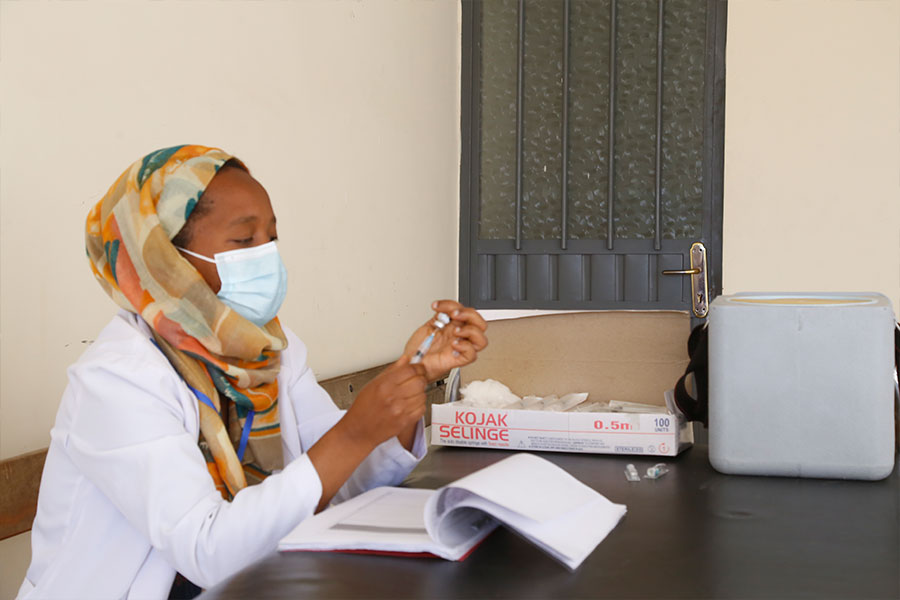
Fortune News | Mar 26,2022
Authorities in charge of the federal public-private partnership (PPP) initiative are mulling over selecting foreign investors looking to participate in joint projects as several awarded to prospective investors through standard bidding procedures failed to materialise.
A bill allowing federal authorities to circumvent public biddings will be tabled to Parliament when lawmakers return from recess next month. Such legislation will pave the road for foreign investors to take on projects through negotiations. The 11-member Board under Finance Minister Ahmed Shide will be responsible for approving negotiated outcomes and awarding projects directly.
Public agencies tabling project proposals will be mandated to negotiate directly with prospective investors, according to Habtamu Mengesha, director of legal affairs at the Ministry of Finance.
“The bill looks to simplify the selection procedure and bridge financing gaps,” Habtamu told Fortune.
A widening budget deficit is a growing worry for federal officials when external loans and grants are diminishing as disbursements from foreign creditors have been on hold. The Import-Export Bank of China suspended the disbursement of 339 million dollars as it reviews Ethiopia’s debt external standing. The move has delayed the construction of eight mega ventures, including the 10Km road linking Qality and Tulu Dimtu on the outskirts of Addis Abeba.
A year after construction activities stopped, the Addis Abeba City Council approved a 267 million Br budget to resume the project’s construction.
The bill is hoped to energise federal officials to search for prospective investors who could finance vital infrastructure projects. Officials in the housing and transportation sectors are more pleased with the proposal awarding foreign investors under the public-private partnership.
“Expressway projects are well-suited to the scheme,” said Yetimgeta Asrat, deputy head of the Ethiopian Roads Administration (ERA). “They generate revenues.”
The Roads Administration received a nod from the board to pursue three road projects. The Adama-Awash Expressway, part of the 357Km road linking Adama with Dire Dawa, is projected to cost 1.2 billion dollars. However, ERA officials abandoned their plans last year after securing 89 million dollars in credit from the African Development Bank (AfDB). The loan covers 80pc of the estimated 6.7 billion Br cost for the 60Km Adama-Awash segment.
Construction on the road, which lies along the Ethio-Djibouti transport corridor, kicked off last year. JMC Construction, a joint venture between an Indian firm and a Chinese state-owned company, is contracted to complete the work in four years.
“We’re trying to identify which projects can be executed under the public-private scheme,” said Yetimgeta.
Yetimgeta and his colleagues are considering the remaining segments of the Awash Mieso (72Km) and Mieso-Dire Dawa expressways for investment under the public-private scheme. He disclosed that ERA faces a financing gap for executing mega-projects.
Another pleased official is Tsegaye Mushe, director of housing development at the Ministry of Urban Infrastructure & Construction. He sees direct selection as a way to spur investors’ interest in low-cost housing projects. The Ministry tabled a proposal to the board after conducting a pre-feasibility study in partnership with the Federal Housing Corporation.
“We’ve identified plots for constructing residential units and complexes,” said Tsegaye.
The Corporation was under the Ministry’s purview before the mandate was transferred to the Ethiopian Investment Holdings (EIH). Under Mamo Mihretu, a policy advisor to the Prime Minister, EIH has taken charge of public enterprises controlling the economy’s commanding heights, including the Ethiopian Airlines Group, the Commercial Bank of Ethiopia, Ethio telecom, and the Ethiopian Shipping & Logistics Services Enterprise.
A sovereign fund, the EIH was established last year with an authorised capital of 100 billion Br; a quarter of this was paid up. Prime Minister Abiy Ahmed chairs the board of six, including Finance Minister Ahmed Shide and Berhanu Nega (Prof.), minister of Education.
Tsegaye says the Ministry plans to submit another proposal to the board after identifying and negotiating with potential foreign investors.
Million Kibret, the managing partner at BDO Consulting Plc, doubts the viability of the proposed selection procedure.
“Even investors awarded projects through the standard bidding process failed to live up to their commitment,” he said.
The public-private partnership financing model came onto the scene due to the public financing crunch for major infrastructure projects. Thus far, the board has approved 23 projects to be developed through the modality. The federal government awarded seven energy projects to foreign investors, including two power plants to ACWA Power, a Saudi-based energy developer. However, attracting investments through public-private ventures remains unsuccessful as most projects have collapsed.
The expert warns that the alternate selection tool is destined for failure without adopting strict guidelines and monitoring mechanisms.
“It’s open to corruption,” said Million.
A month ago, the public-private directorate supervised by Tilahun Tadesse at the Finance Ministry called for an expression of interest in constructing a comprehensive diagnostic centre in Addis Abeba projected to cost 50 million dollars. Prospective investors have yet to show interest.
PUBLISHED ON
[ VOL
, NO
]

Fortune News | Mar 26,2022

Radar | Jul 23,2022

Fortune News | Sep 01,2024

Editorial | May 02,2024

Featured | Sep 08,2024

Fortune News | Sep 13,2025

Fortune News | Aug 15,2022

Fortune News | Aug 30,2025

Fortune News | Nov 13,2021

Commentaries | Sep 01,2024

Dec 22 , 2024 . By TIZITA SHEWAFERAW
Charged with transforming colossal state-owned enterprises into modern and competitiv...

Aug 18 , 2024 . By AKSAH ITALO
Although predictable Yonas Zerihun's job in the ride-hailing service is not immune to...

Jul 28 , 2024 . By TIZITA SHEWAFERAW
Unhabitual, perhaps too many, Samuel Gebreyohannes, 38, used to occasionally enjoy a couple of beers at breakfast. However, he recently swit...

Jul 13 , 2024 . By AKSAH ITALO
Investors who rely on tractors, trucks, and field vehicles for commuting, transporting commodities, and f...

Oct 4 , 2025
Eyob Tekalegn (PhD) had been in the Governor's chair for only weeks when, on Septembe...

Sep 27 , 2025
Four years into an experiment with “shock therapy” in education, the national moo...

Sep 20 , 2025
Getachew Reda's return to the national stage was always going to stir attention. Once...

Sep 13 , 2025
At its launch in Nairobi two years ago, the Africa Climate Summit was billed as the f...